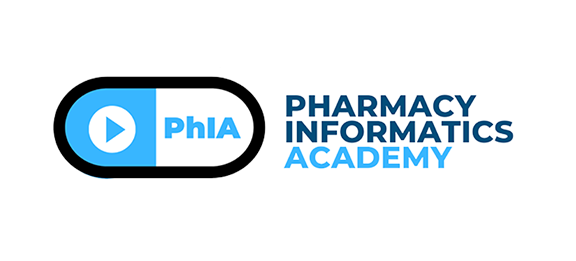Pharmacy Informatics: Top 10 Resume Tips for Pharmacy
1. Remove the fluff
Avoid adding irrelevant projects and roles to simply pad your portfolio of achievements.
Make sure to target your resume to be relevant in the eyes of your future hiring manager. With each job application, review your resume so that it makes sense to the person who will, ultimately, pick it up and glance over the essentials. This may be the most critical decision point of whether you make it to the next round of interviews or not.
If you need some help getting started with a clean template for a new resume, check out Resume.com for a simple way to build an early version at zero cost.
2. Master the art of the humble brag
Do not miss an opportunity to pitch your true worth. I’ve seen this mistake many times and this is where informatics professionals fail to add one essential line item to showcase their results. Whether it’s using metrics or other performance data, always try to demonstrate the outcomes you had accomplished on one or two major projects. For instance, saving a quarter of million dollars, as part of a pharmacy cost reduction project, implementing a decision support tool is a great way to deliver a key message that you are a results-driven individual.
3. Be mindful of expired certifications
Be mindful not to let your certifications lapse or at least keep your resume current with your portfolio. These are high value skills and knowledge that you can offer future employer, so position your messaging within the context of their needs. This section also shows your future employer that you are someone that has a capacity to learn and makes the effort to stay up to date. A good example is to go through the PMP crash course by Dr. David Vu to diversify your portfolio and value you bring to any team.
4. Credible use of online training platforms
Training from educational platforms like Coursera or Lynda are appropriate depending on how you position your messaging. It may be better to list a select few if it strongly applies to your employer needs – always ask if it matches your target audience. However, it’s also not a bad idea to find ways to self-learn new skills using these platforms that can be discussed more at length during an interview. A really exciting platform that we have come across is DataCamp, which you can get for $149/yr subscription with special promotional pricing deals. There a ton of data analytics and development courses that are available within this site and we’ve heard great review from our colleagues.
5. LinkedIn should match your portfolio.
The power of personal branding goes beyond the traditional resume today. Often times future employers will search for your profile on social media platforms, such as LinkedIn, to find out more about you during the application process. In fact, some employers may find out about you before you even apply!
We will explore LinkedIn in a separate article but just be aware that it should not simply be a copy and paste of your resume.
6. Build your network
Look into advancing your skills for professional growth and continue to be a lifelong learner. While some organizations have some training available for professional development, the reality is that if you are your own advocate and it may not fit your career roadmap. You may need to go outside to get the training you need to upskill or reskill.
There are several professional organizations that have great resources to leverage as you explore areas of interest. ASHP Section of Pharmacy Informatics and Technology is a good place to start your research.
7. Don’t forget to do some spring cleaning
Look at your timeline and recency of your work. Do your student rotations matter if it was several years ago?
8. Keep it Simple
Simple things like formatting, visual impact and concise writing make the resume more effective to read/scan.
9. Don’t limit yourself to the resume
Once you’ve secured an interview, if you want to go above and beyond to really impress your interviewer – create a binder with your professional use case projects. Seldom executed but bringing a binder with recent/current projects to the interview and leave it behind for review can affect how well you score.
10. Speak to your peers and colleagues
More often than not, many of your peers and mentors are willing to help provide feedback to your resume and give you additional tips on what to expect to secure an interview.
If you have any questions, drop us a line or comment below and we can share some advice on your next steps.


April 22, 2020 @ 10:02 pm
Thanks for these tips! I am looking forward to finishing my residency and plan to apply for informatics positions soon.
April 26, 2020 @ 5:51 pm
Wishing you the best of luck! You’ve got this!